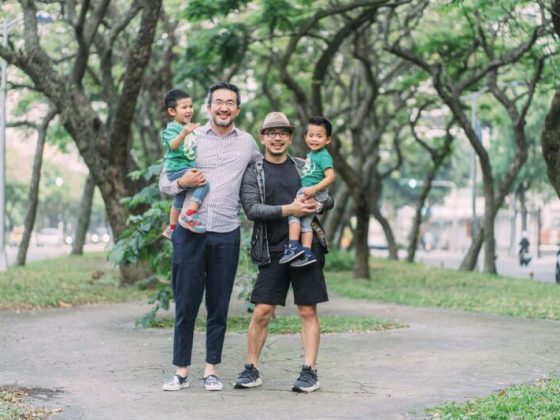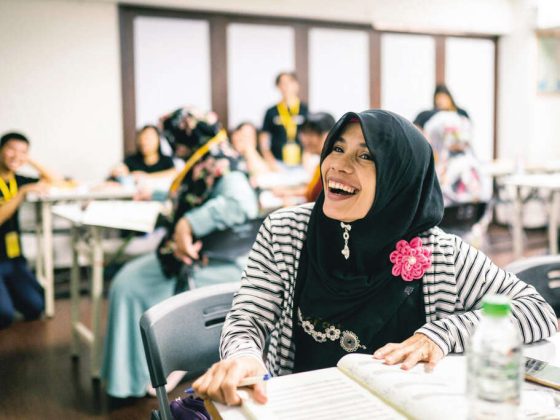WORDS BY Rick Charette
PHOTOS BY Yenyi Lin, Taiwan Scene, Liu Jiawen
In a sit-down beside the mosque’s prayer hall, the good Dr. Ibrahim Chao (趙錫麟) discusses the origins of Taiwan’s Muslim community, the local Muslim experience growing up, and today’s travel experience for Muslims both local and from afar.
Dr. Ibrahim Chao is an unusually cosmopolitan man. Among the professional hats he wears: Taipei Grand Mosque (台北清真寺) Imam, Chief Sharee’ah Advisor with the Chinese Muslim Association (中國回教協會), and part time professor in Arabic and Islamic studies at National Chiao Tung University (交通大學). Among professional hats worn in the past: diplomat representing the Republic of China in Libya and the Middle East for more than 20 years.
Chao has borne witness to Islamic history in Taipei his entire life. The gentle professor invited us into the Taipei Grand Mosque to talk about his memories from the old days, and share his insights on Muslim culture in Taipei.
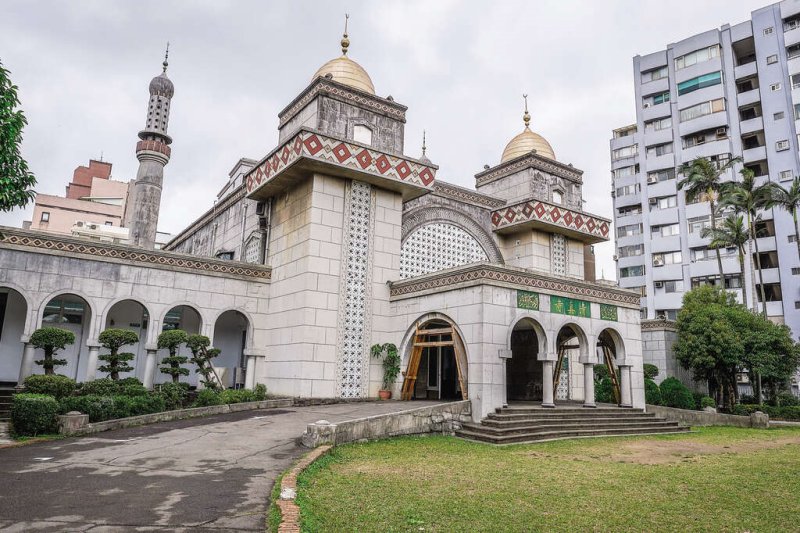
THE MUSLIM PAST IN TAIWAN
According to Chao, today Taiwan is home to approximately 60,000 Muslim residents, of which about 90% belong to the Hui (回; ethnically Chinese adherents of Islam) ethnic group. There are also about 150,000 foreign Muslims working in Taiwan, primarily from Southeast Asia. The island has 11 mosques, with the Taipei Grand Mosque the oldest and largest.
There have been three waves of Muslim migration, says Dr. Chao. Islam first reached Taiwan when Muslims from the mainland Chinese province of Fujian (福建) came with Zheng Chenggong (鄭成功), aka Koxinga (國姓爺), on his campaign to oust the Dutch from the island in the 1660s. Their descendants were eventually absorbed into the general Han Chinese population.
The second wave came with the Nationalist exodus to Taiwan from China at the end of the Chinese Civil War in 1949. About 20,000 Muslims came, and many of them were soldiers and government employees, including Dr. Chao’s grandfather.
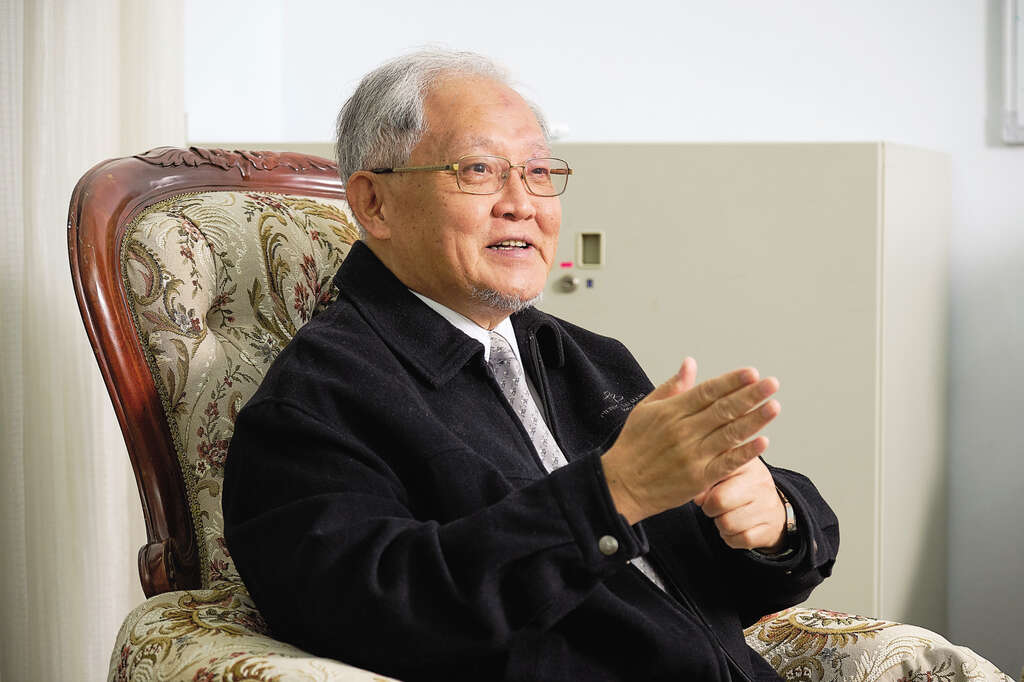
The third wave began in the 1980s. Muslims in their thousands have migrated from Thailand and Myanmar, seeking a better life. These are primarily descendants of Nationalist military personnel that escaped to this region following the Communist victory in the Chinese Civil War. A well-known neighborhood surrounding Huaxin Street (華新街) in New Taipei City’s Zhonghe District (中和), immediately south of Taipei, is called “Little Burma” or “Burma Street”, chock-full of theme eateries, cafes, and shops. It is located close to MRT Nanshijiao Station (捷運南勢角站). Taipei itself has no such concentration of Muslim residents.
MUSLIM IN TAIWAN
The Imam states that Muslims face no discrimination in any form in Taiwan. In full agreement with this is the Chairman of the Taipei Grand Mosque Foundation, Omar Wang (王保新) — Dr. Chao’s lifelong friend — who is sitting in on the interview. Taiwan’s geo-position has made it “a crossroads of humanity,” Dr. Chao states, “and the different groupings have learned to get along with and support each other.”
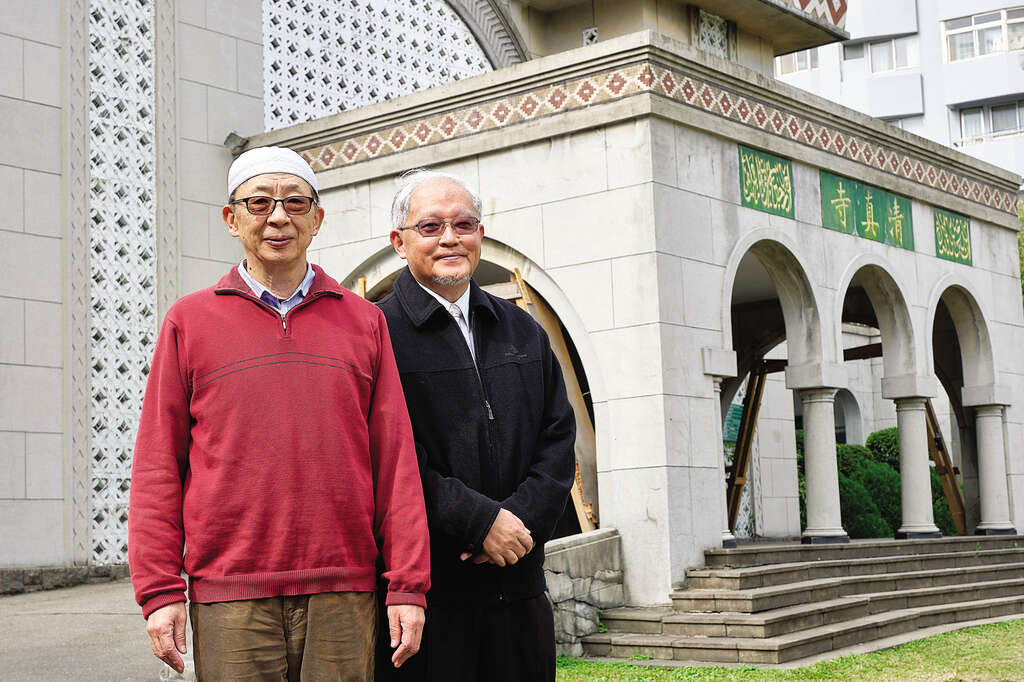
Many fellow citizens may not even be aware that an individual is Muslim, says Chao, because in outward appearance and most habits local Muslims blend in seamlessly with the Han Chinese majority. There is a philosophical life approach in the Muslim world that you “create your own environment” — meaning that when it comes to prayer and such matters you adjust so that you can maintain peace and harmony in your life by not forcing others to change their ways. It is the inner sincerity of your belief, your personal relationship with Allah, that counts, not external display.
Today, there are many public Muslim-friendly facilities, but in times past it never seemed much of a problem. “Taiwan’s Buddhist roots mean many vegetarian eateries,” says Wang, “and in any event, Muslims tend to gather with each other in private quarters, preparing food communally.” He has fond memories of his Taipei university days, gathering with fellow Muslim students from Taiwan and around the world.
Both Wang and Chao have vivid memories of their younger days when Halal slaughter and meat preparation could be carried out in private homes in the city. Both also have bright memories of the proud and colorful day when the Taipei Grand Mosque was formally opened. The Byzantine-style mosque was built in 1960 according to the tenets of the Islamic religion and Arabic architecture. The domed roof, 15 meters high, is supported without beams. With space for a thousand worshippers, visitors can find both local and foreign Muslims gathering every Friday from 12:00 pm to 1:15 pm for Jumu’ah (Friday Prayers). Standing solemn and proud on Xinsheng South Road facing tree-rich Daan Park, today this stately mosque has become a visible symbol of Islam in Taiwan.
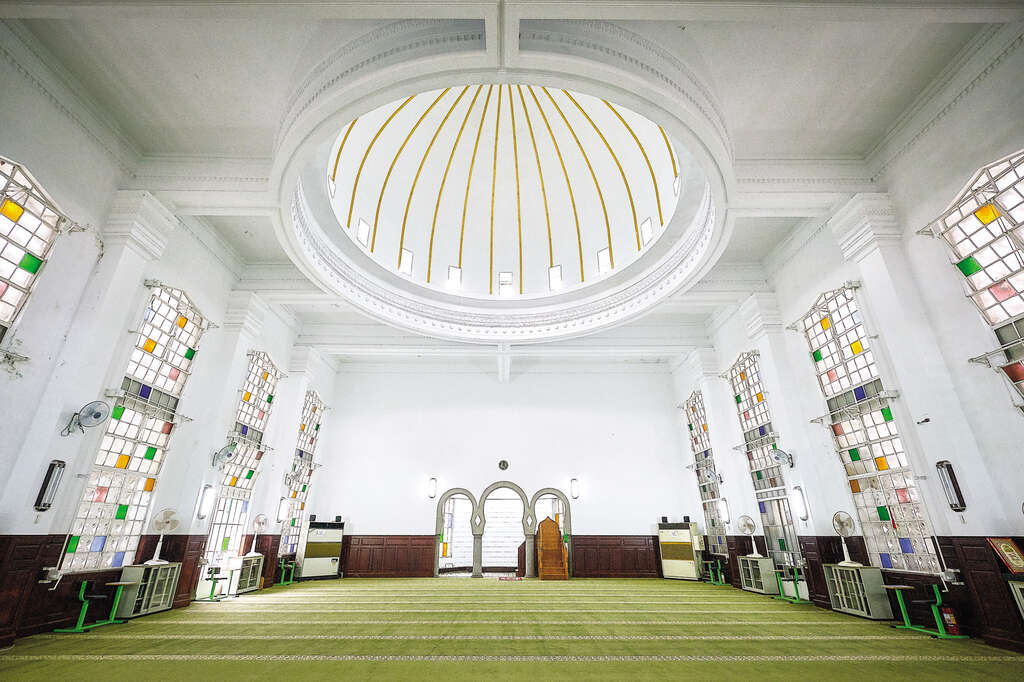
MUSLIM-FRIENDLY TAIPEI TRAVEL
Dr. Chao states that the travel experience for Muslim visitors, in Taipei and throughout Taiwan, has been impressively advanced over the past two decades. In recent years, Taiwan has consistently been named one of the top non-Muslim country destinations in the MasterCard-CrescentRating Global Muslim Travel Index (GMTI), and right at the top for travel safety. (You might also like: Herban Kitchen & Bar: A Western Vegetarian Oasis in Taipei)
The Taiwan and Taipei governments are very aware, he states, “that in contrast to the norm among Western travelers, who engage in much individual DIY adventuring, Muslim travelers have a preference for group travel, with family members and/or friends and associates.” The city government is engaged in a systematic years-long promotion campaign to attract tourists from Southeast Asia, and works with tourism industry enterprises to develop targeted preferential travel packages. Special Muslim-friendly guided tours have also been put together.
The government, says Dr. Chao, works closely with the Chinese Muslim Association to improve and expand Muslim-welcoming facilities. Special amenities such as prayer rooms and facilities for both ritual and minor ablution have been set up in public locations, notably in transportation stations. Taipei Main Station — the biggest hub in Taipei — is one of the examples that provides prayer rooms for Muslim travelers as well as foreign workers from Southeast Asia.
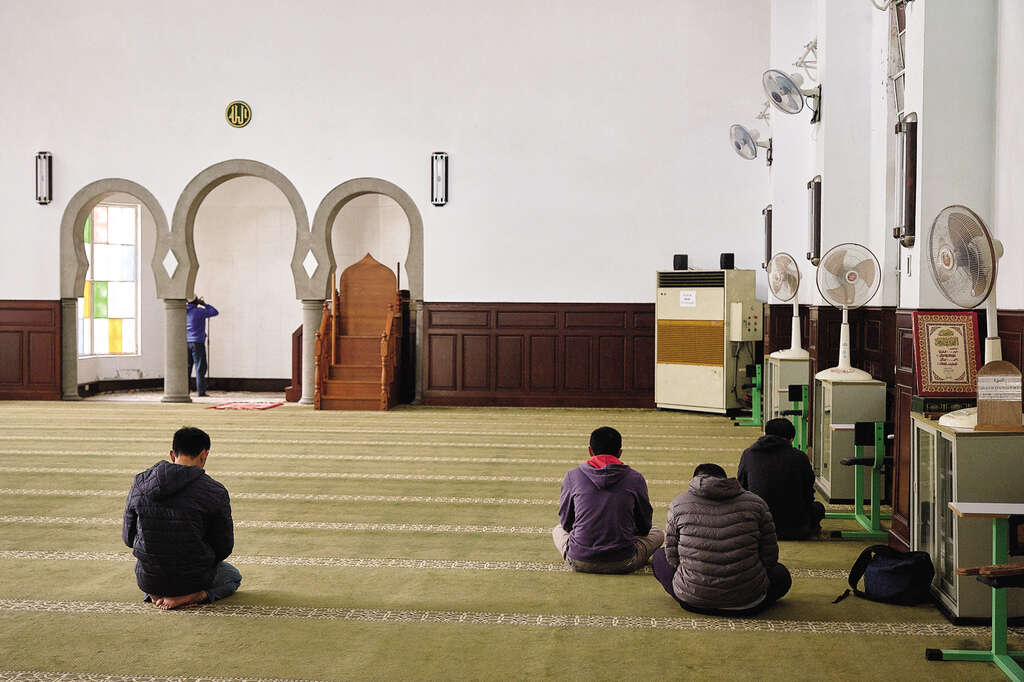
The association also does vetting for a restaurant and offers a hotel certification program providing Halal, Muslim, and Muslim-friendly labels. In cooperation with the Tourism Bureau, Muslim travelers can easily find a list of Muslim-friendly restaurants and hotels online. Hotels like the Madison Taipei (慕軒飯店) provide prayer timetables, prayer rugs, and the QIBLAH mark for Muslim’s use in the room. In coordination with the Taipei City Government, many vendors at Taipei’s Raohe Street, Ningxia (寧夏夜市), Nanjichang (南機場夜市) and other night markets also have “pork free” and “non-alcoholic” signage posted. (Read more: Seven Taiwan Night Markets Everyone Needs to Visit)
When asked about areas where he would like to see improvement in the Muslim-traveler environment, Dr. Chao states that he would like to see expansion of Muslim-friendly facilities in more public spaces, such as government buildings, hospitals and parks — especially in places either popular or commonly used by Muslims both local and from overseas. As well, he states, it remains too common that extant Muslim-friendly facilities in public places are found inaccessible; posted contact information for responsible quick-response service personnel would be a big help.
IN TOWN JUST A DAY OR TWO — THE DOCTOR’S TOURING RECOMMENDATIONS
We live in a globalized world, says Dr. Chao, and by definition the Muslim traveler who likes to travel the world and chooses Taiwan as destination is more cosmopolitan. Thus, those who visit Taipei have a thirst for knowledge and experience that leaps far beyond what can be called “Muslim matters.”
His first example — a day-tour for nature lovers. Taipei is one of the few cities in the world where, in a single day, you can leave the urban core and spend time both up in the high mountains and down by the frothy ocean. It’s also one of the world’s few cities with a national mountain park looking directly down into it. Yangmingshan National Park takes up the upper reaches of the multipeak Yangmingshan (Mt. Yangming) massif, and visitors enjoy choices ranging from the lyrical floral landscaping of Yangming Park ( 陽明公園) to a moderate-grade hour-long hike up fumarole-decorated Mt. Qixing (七星山), an extinct volcano. The mountainsides slide down right to the ruggedly photogenic rocky north coast, and in the port town of Tamsui (淡水), easily reached via the Taipei Metro, visitors can enjoy leisurely cycling on Taipei’s extensive riverside bike-path system. (You might also like: Seven Star Mountain Hike)
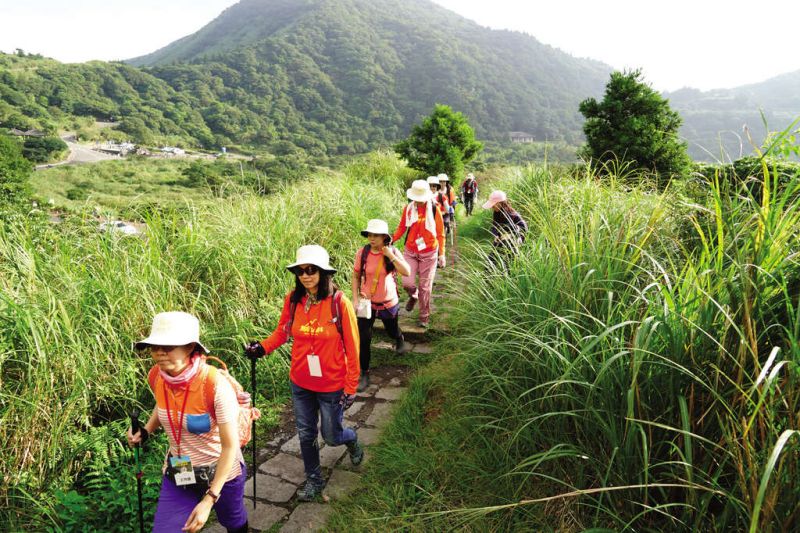
A second example — a day-tour for foreign-culture aficionados. An unbeatably entertaining and educational way to explore Taiwan/Taipei traditional religious and folk culture is with visits to two of the world’s most impressive Chinese temples, Longshan Temple (艋舺龍山寺) and Baoan Temple, both located in thriving old-time market areas in the west of the city. As is the norm with large-scale Chinese temples, both also have neighborhood night markets, originally set up long ago to service the needs of the streams of worshipers. Visit these to explore Taiwan’s horizonless world of traditional and newfangled snack-treat treasures. (You might also be interested in: Ultimate Taipei Day Tour)
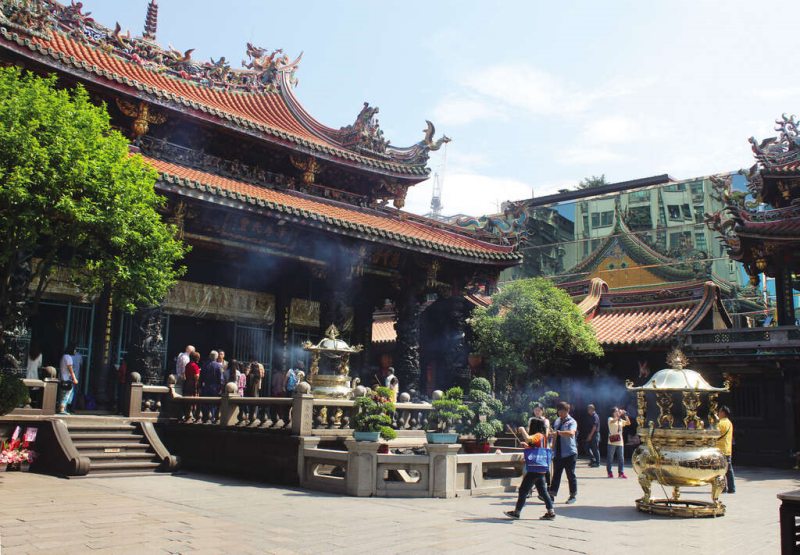
Invariably, visits to these places will raise myriad “big picture” questions regarding Taipei’s development. Perhaps the city’s best place to find answers is the Discovery Center of Taipei (台北探索館), a multi-floor facility right inside Taipei City Hall that has first-rate exhibits, many interactive, on Taipei’s past, present, and future.
Naturally, Dr. Chao also recommends that a Taipei Grand Mosque visit be put on every traveler’s itinerary, Muslim and non-Muslim alike. Guided group tours are available in numerous languages, with advance notice required. As well, if in town at the right time, don’t miss the annual Eid al-Fitr Celebration in Taipei, an invaluable public window into the Taipei Muslim-community experience. The community turns out en masse, yet is far outnumbered by non-Muslim revelers. Staged in Daan Park by the city government, attractions of this festive event include a themed market with treasures from Muslim communities around the globe along with cultural performances and outdoor lectures. (Read more: Spring 2020: Calendar of Good Times)
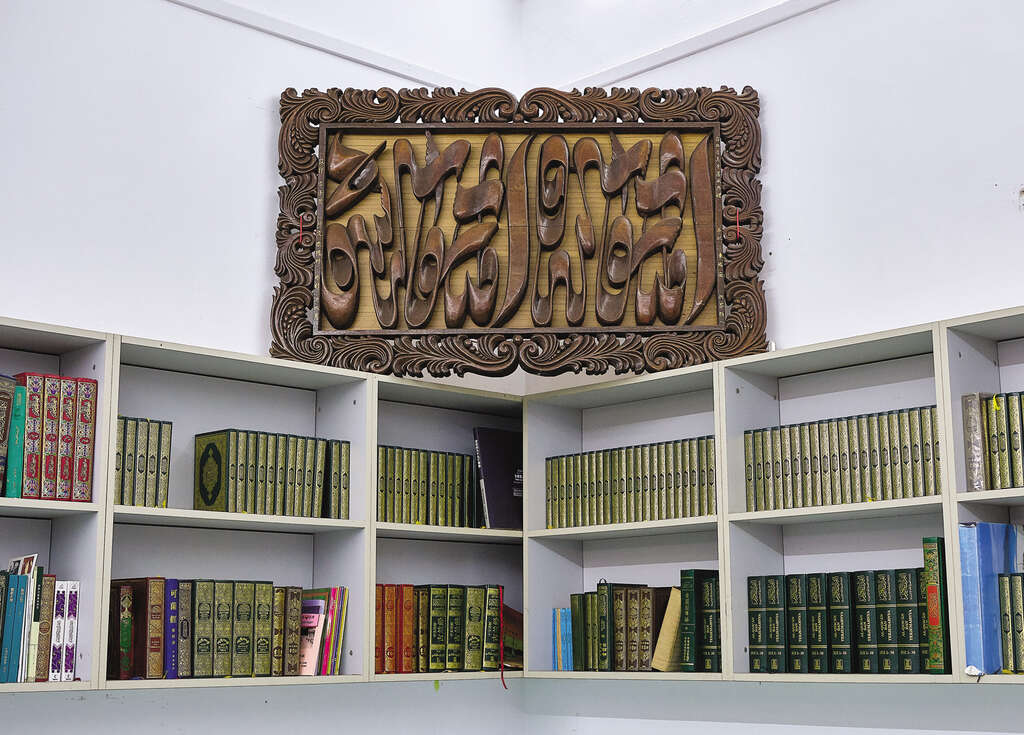
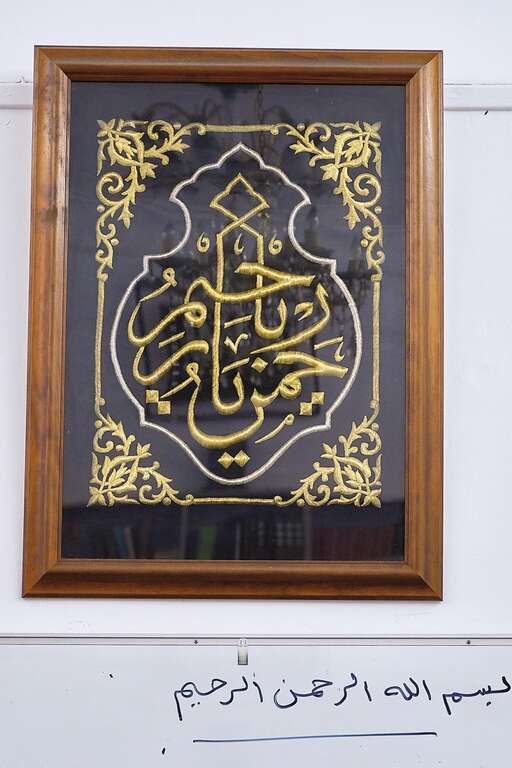
More Information
For more information on Muslim-friendly services, visit the “Muslim-friendly Taipei” section on the Taipei City Government travel website (travel.taipei/muslim) and the “Muslim-friendly Environment” section on the Taiwan Tourism Bureau website (eng.taiwan.net.tw); the Tourism Bureau has also published a booklet, Taiwan Travel Guide for Muslims, also available online.
This article is reproduced under the permission of TAIPEI. Original content can be found at the website of Taipei Travel Net (www.travel.taipei/en).


